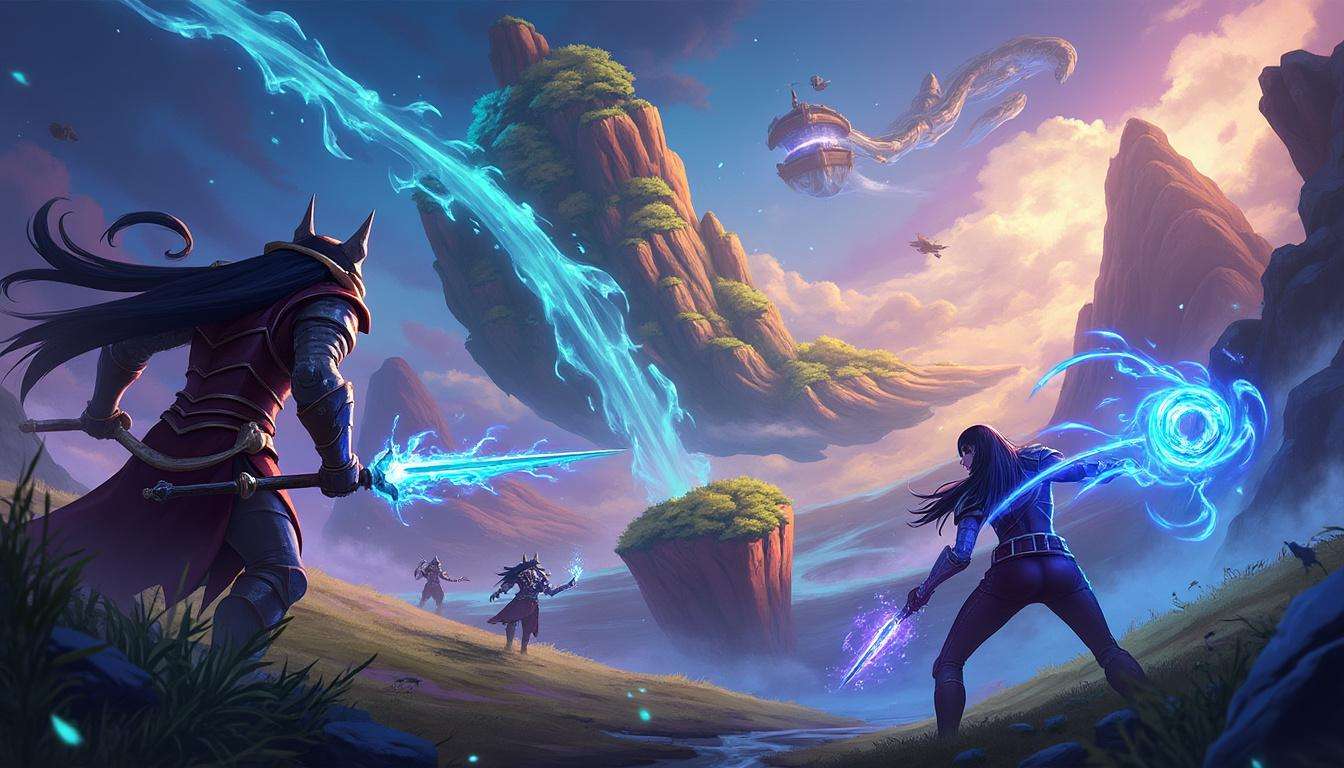Summary: As a pro gamer who never quite stuck with Summoner’s Rift, I found a new Gaming Obsession in Riftbound. This LoL LoL Spinoff trading card game from Riot Games delivers accessible entry points while keeping deep tactical options for competitive play.
Brief: Below, I follow a player named Alex through the first weeks with Riftbound, breaking down deckbuilding, the rune system, battlefield races, and why this title could land in the Esports spotlight.
Why Riftbound Is A Fresh Entry For League Players
Alex was intimidated by classic MOBA maps but found Riftbound easier to approach. The game translates the characters and themes of League of Legends into a card format that keeps the lore while simplifying core systems.
- Easy onboarding for newcomers and LoL fans alike.
- Legend-driven deckbuilding that mirrors champion roles from the MOBA world.
- Short, tactical matches suitable for casual nights or competitive events.
For readers who want a formal primer, the piece Discovering Riftbound gives a full walkthrough of basics and early strategies.
Key insight: Riftbound lowers the entry barrier while preserving the tactical depth expected by long-time card and LoL players.
Accessible Deckbuilding: Legends, Runes, And Champions
Deck construction begins by choosing a Legend—a character that shapes which rune flavors you can use and grants a repeatable ability. Legends determine the two rune types available, driving archetype identity much like class choices in other TCGs.
- Build a 40-card deck with up to three copies per card.
- Include at least one Champion unit that pairs with your Legend and sits outside the main deck.
- Runes live in their own 12-card deck, added to play two per turn.
For a look at confirmed champions and how they slot into Legends, consult the list here: Complete List of Confirmed Champions.
Key insight: Choosing the right Legend defines both your strategy and the tempo of the match, rewarding intentional deck design.
How Runes And Battlefields Reshape The TCG Experience
The core loop is a race to earn eight points by capturing and holding Battlefields, which each grant unique effects. Runes are handled in a separate deck, so resource draws become a tactical choice rather than a lottery.
- Players put two runes into play each turn from a 12-card rune deck.
- Some powerful plays require recycling runes back into the deck, altering future resource access.
- The final point must be earned by either controlling all Battlefields or starting your turn on a location you already hold—this prevents anticlimactic snatching of victory.
This design was iterated to keep endings dramatic; for more on how Riftbound diverges from other card games, read Riftbound reshapes the Magic experience.
Key insight: The separate rune deck and battlefield scoring system give players clearer tactical control, producing closer and more exciting finishes.
Strategic Moments: Sudden-Death And Tactical Depth
Riot’s playtests added the special last-point rule to ensure wins feel earned. Alex described matches that swung back and forth in the final turns, contrasting the predictable endings he’d seen in other TCGs.
- Battlefields have unique modifiers—control matters beyond mere board presence.
- Turn-based rune deployment changes how you time big plays.
- Defensive commitments and area control create meaningful choices every turn.
Key insight: Design choices emphasize tension and agency so late-game decisions carry weight and storytelling value.
Champion Presentation, Skins, And The Competitive Horizon
Champions act both as gameplay pieces and as a narrative link to League. The presentation—art, flavor, and Champion Skins potential—ties Riftbound closely to the broader League ecosystem.
- Champion cards offer mechanical uniqueness and narrative continuity.
- Skins and artwork provide collectible appeal for LoL fans and collectors.
- Cross-promotional opportunities position Riftbound as a true LoL Spinoff product.
Riot’s product announcements and lineup can be read in detail at Riot Games product lineup, while community interest surges are documented here: Pre-order frenzy report.
Key insight: Strong champion identity and collectible aesthetics make Riftbound appealing to both card players and LoL collectors, increasing its esports potential.
Multiplayer Modes, Local Nights, And Esports Potential
Riot designed systems to support both tense 1v1 matches and relaxed multiplayer sessions. Alex found Nexus Nights at local game stores were ideal for onboarding friends into competitive and casual formats.
- Formats accommodate both solo competitive play and group social sessions.
- Local events can seed grassroots esports scenes centered on Riftbound.
- Long-term viability depends on balanced card releases and community support.
For discussion on Riot’s balancing and community considerations, see this context on Riot’s approach: Riot acknowledges community concerns.
Key insight: The mix of multiplayer modes and local events makes Riftbound well-suited to both social play and emerging competitive circuits.
Availability, Starter Sets, And What To Buy First
Initial demand outpaced supply, but Riot has promised restocks. The Proving Ground box is an excellent entry point, offering ready-to-play decks and a structured experience for groups.
- Proving Ground box set includes preconstructed decks for 2–4 players.
- Expect staggered restocks; check official announcements for timetable.
- Collectors should monitor special card drops and limited prints tied to events and Champion Skins.
Official release and distribution notes are tracked here: English release details and the broader product emergence is summarized at Riftbound emerges as a remarkable TCG.
Key insight: If you want a ready-made Riftbound experience, the Proving Ground box is the most reliable gateway while stock stabilizes.
How To Join A Local Game Night And Find Events
Alex scheduled Nexus Nights, signed up for local store events, and followed official Riot and community channels. That network of events is where new strategies and emerging metas form.
- Follow store event calendars for Nexus Nights and prerelease play.
- Trade and test with local players to refine decks and learn matchups.
- Watch community streams to see evolving tactics and champion uses.
For news on companion products and evolving card releases, this article covers new card reveals: Unveiling two new cards.
Key insight: Active local play and event attendance accelerate learning and create the social momentum necessary for Riftbound to thrive long-term.

